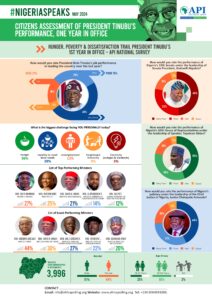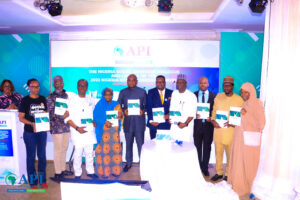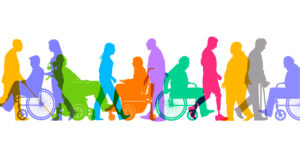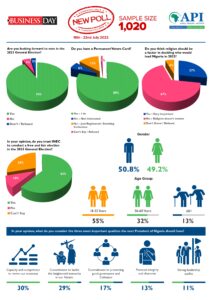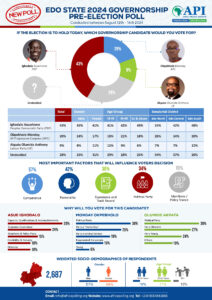
Nigerians Would Rather Vote Mixed Faith Presidential Ticket In 2023 – New Poll
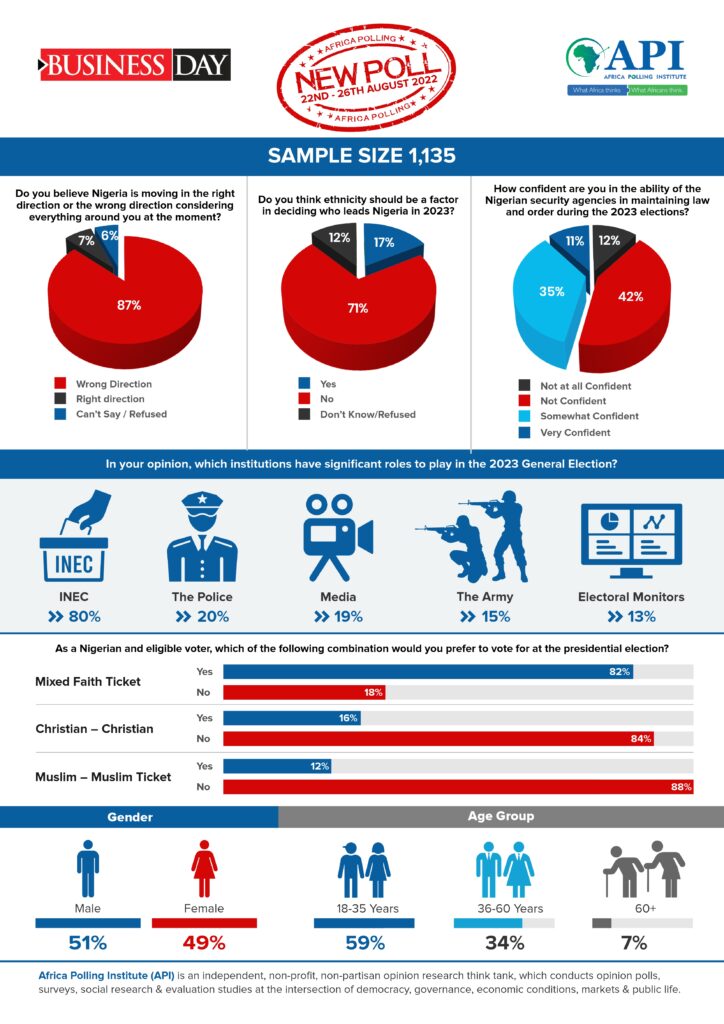
Abuja, Nigeria, September 9, 2022 – Africa Polling Institute (API) in partnership with BusinessDay conducted the 2nd round of the 2023 Election Series. The nationwide poll was conducted between the 22nd and 26th of August 2022 to gauge the perception of Nigerians towards the 2023 General Elections in Nigeria. A quantitative approach was adopted for the poll involving telephone interviews administered to target respondents and eligible voters aged 18 years and above. A Stratified Random Sampling Technique was adopted to representatively select citizens in all 36 states of the nation and the Federal Capital Territory (FCT).
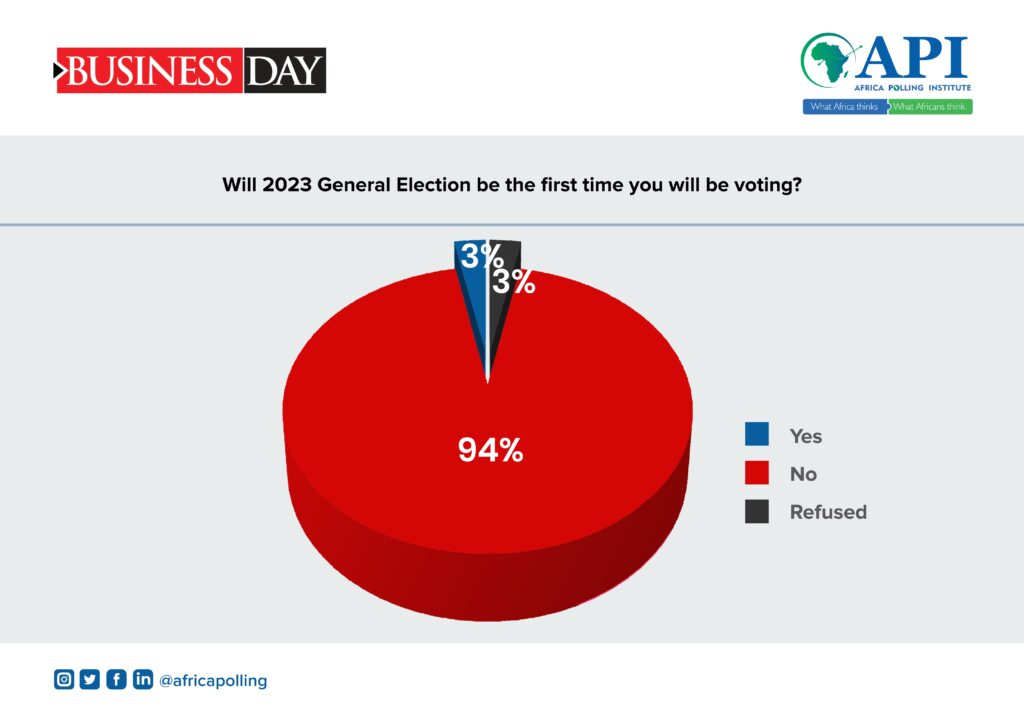
A total of 1,135 completed interviews were captured in the poll out of 3,072 calls made, representing a response rate of approximately 37%. The interviews were conducted in five major Nigerian languages (English, Pidgin-English, Hausa, Igbo and Yoruba) to ensure inclusiveness and wider access to the geographical landscape of the country with adequate representation. The average time per interview was 10 minutes.
Post-stratification of gender and geo-political zone weights were applied to the data to make it more representative of the population, allow for more accurate population totals of estimates and reduce non-response bias. The weights assigned were in proportion to the 2006 population figures. The margin of error for this poll does not exceed plus or minus 3 percent at the mid-range with a confidence level of 95 percent. The descriptive analysis for this poll involves the tabulation of responses in frequency tables and charts.
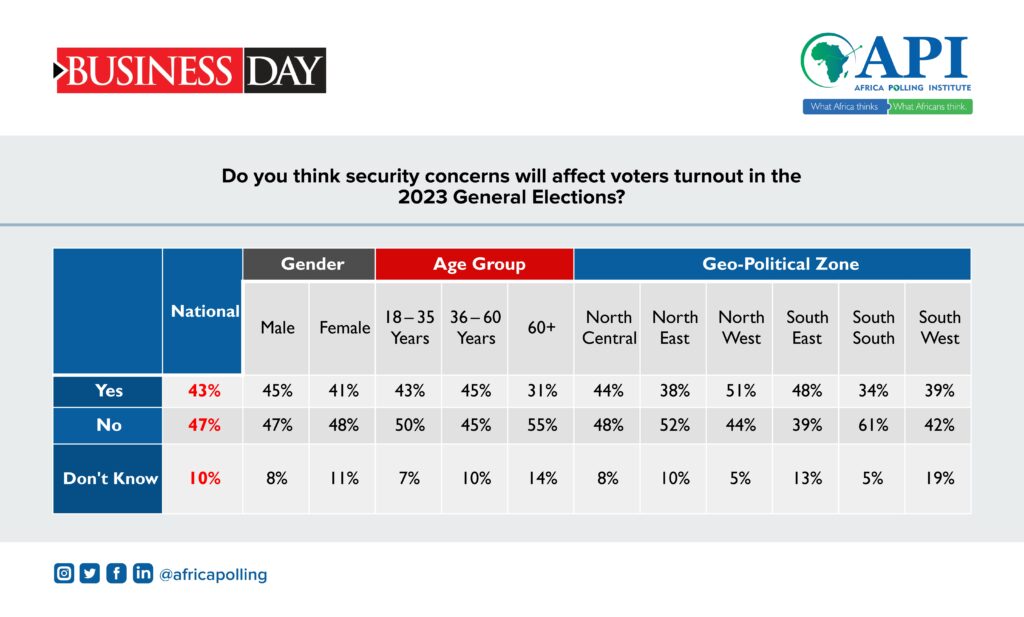
In summary, the poll revealed that the majority of Nigerians (87%) express displeasure at the state of affairs, stating that the country is heading in the wrong direction. On the other hand, only 7% of respondents affirmed the country is heading in the right direction, followed by 6% who refused to disclose their stand on the state of the country. Further questions were asked to ascertain first-time voters, and results show 94% of the respondent are not first-time voters while 3% affirm they will be voting for the first time.
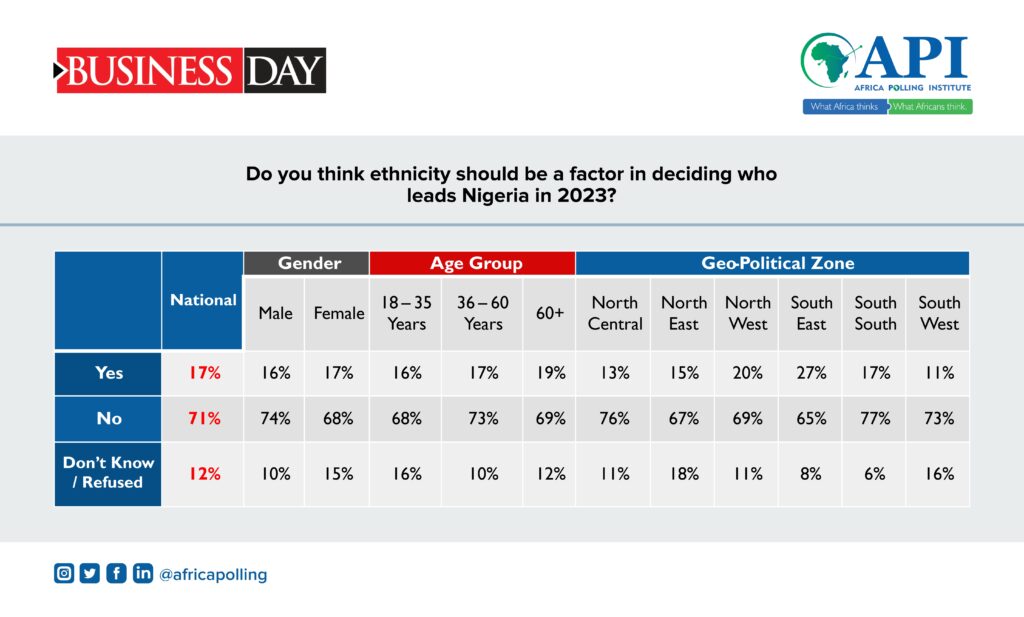
The first-time voters were also asked to state their reasons for wanting to vote in the 2023 general elections. In response, To vote for credible leaders (37%), Eligibility to vote (28%), Vote doesn’t count (18%) and 17% Who just registered for their Permanent Voters Card (PVC) amongst others was stated to be their reasons.
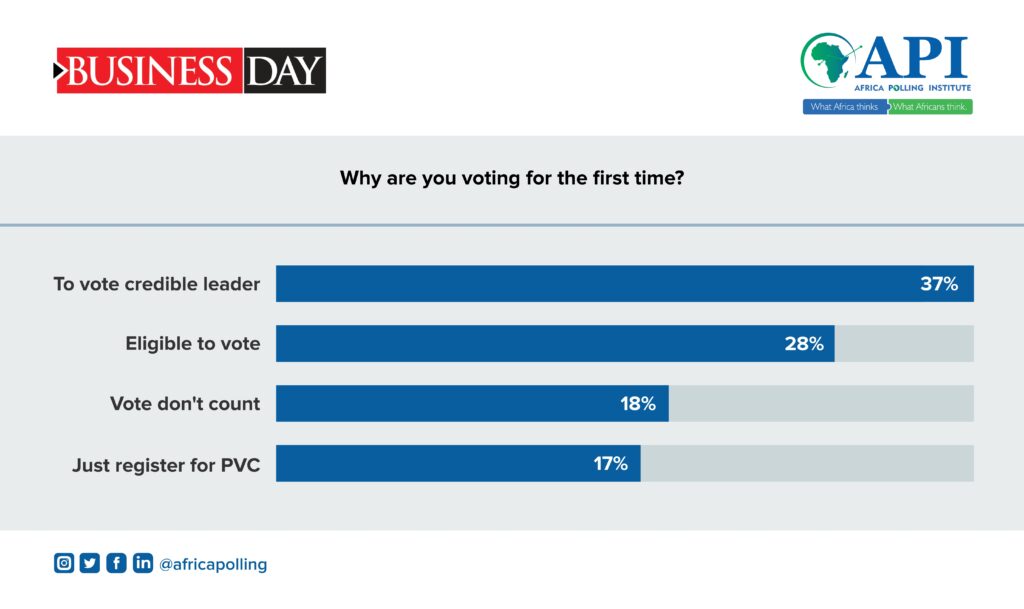
Interestingly, 71% of the respondents do not consider ethnicity as a factor in deciding who should lead the country. On the other hand, 17% affirmed ethnicity to be considered and 12% remain neutral.
Regarding security concerns in the country, 47% of Nigerians believe insecurity will not affect voter turnout in the 2023 General Election, followed by 43% who believe the current state of insecurity would hurt voter turnout in the 2023 Election, and 10% are yet to conclude.
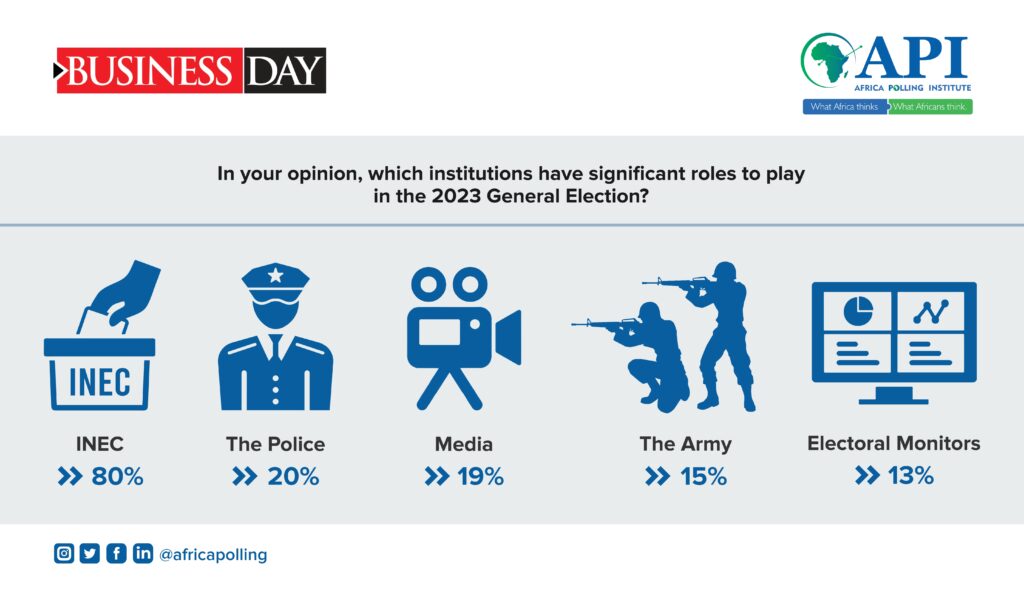
Furthermore, 88% and 84% expressly stated that they won’t vote for the same religion candidature for the same ticket at the presidential level – either a Muslim-Muslim ticket or a Christian-Christian ticket respectively but would rather vote for a mixed faith ticket at 82%. Moving further, 54% of the respondent have lost confidence in Nigerian security agencies in maintaining law and order while 46% still have some confidence to uphold and maintain law in preparation for the 2023 General Election.
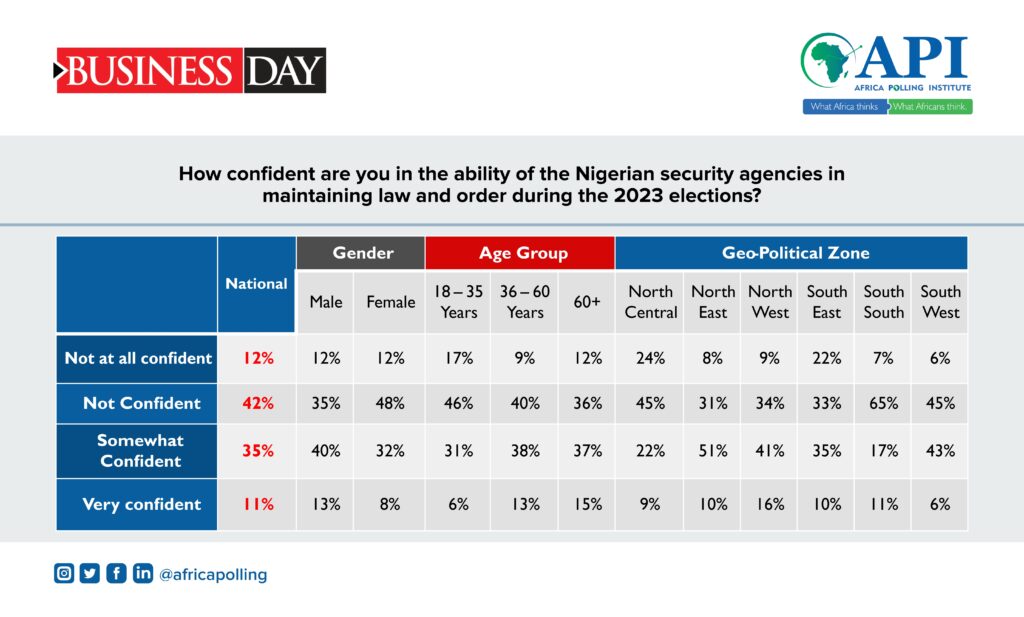
Finally, Nigerians identified 5 top institutions with significant roles in the 2023 General Election as Independent National Electoral Commission (INEC) 80%, The Police (20%), Media (19%), The Army (15%), and Electoral Monitor and Observers (13%) amongst others.
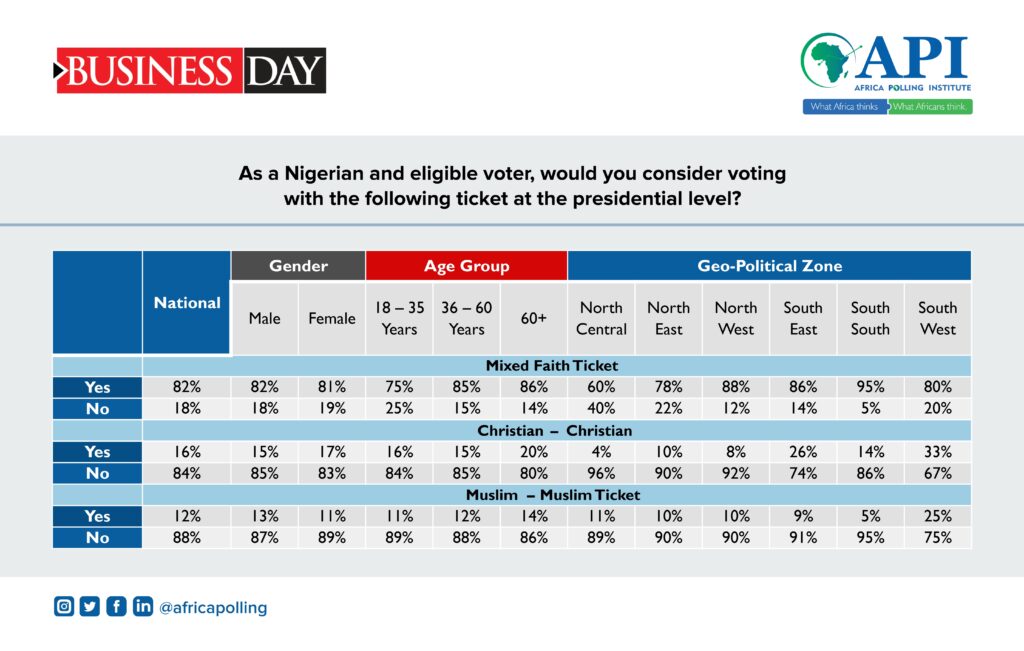
Africa Polling Institute (API) is an independent, non-profit and non-partisan opinion research think-tank, which conducts opinion polls, surveys, social research, and evaluation studies at the intersection of democracy, governance, economic conditions, markets, and public life; to support better public policy, practice, and advocacy in sub-Saharan Africa.
Signed
Professor Bell Ihua
Executive Director, Africa Polling Institute
Email: info@africapolling.org Website: www.africapolling.org Tel: +234 8064841888.
